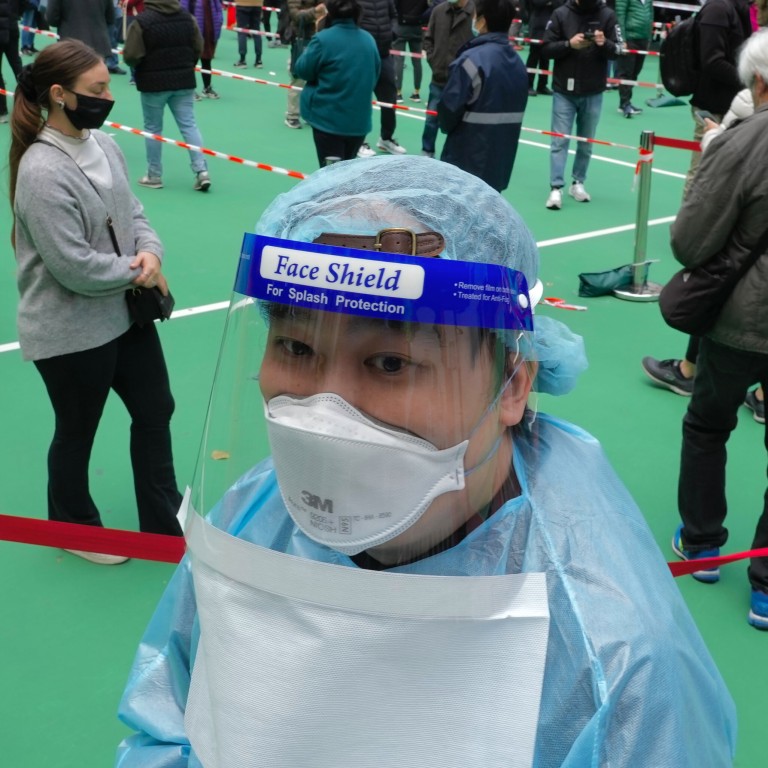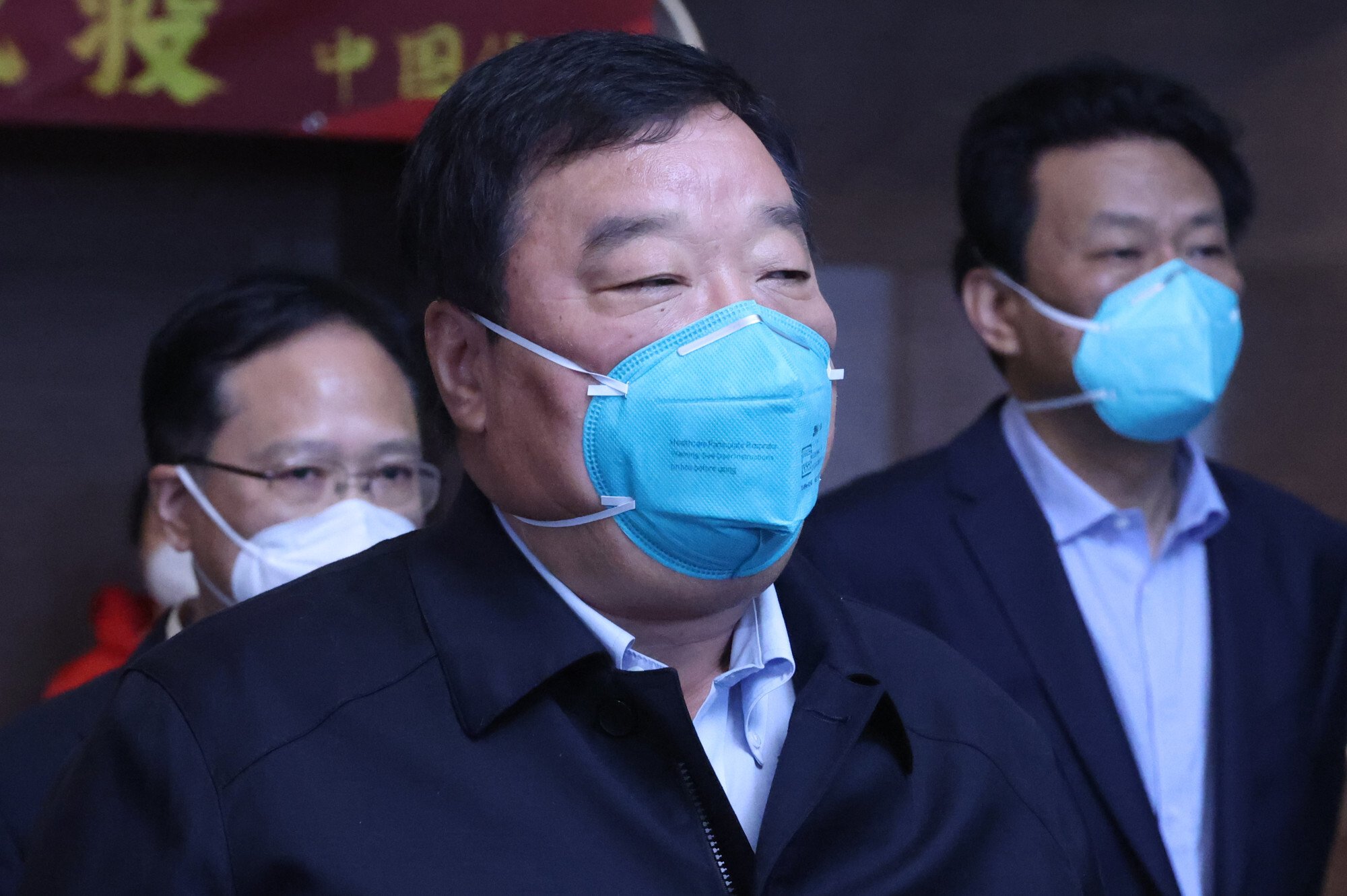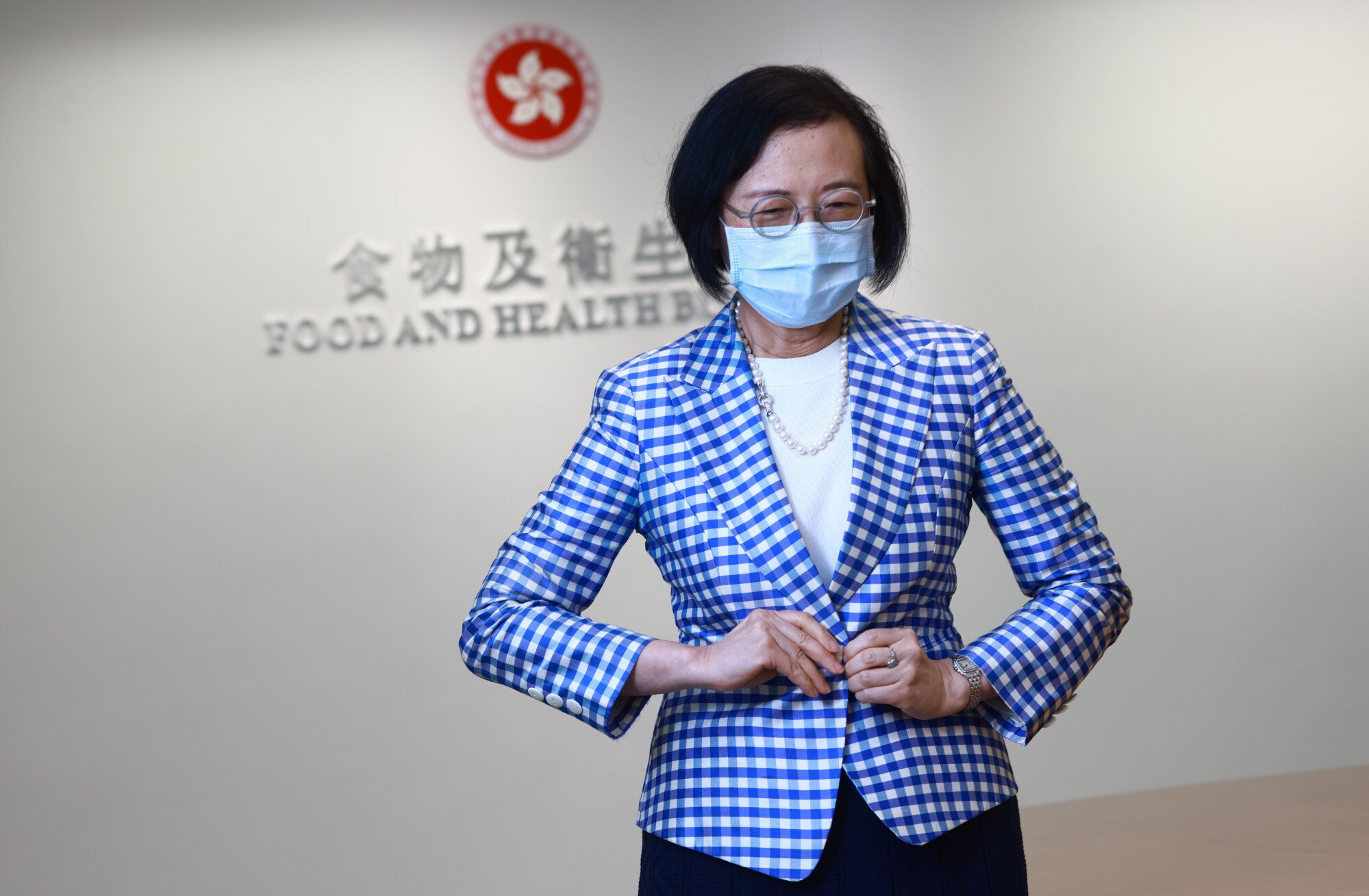
Covid-19: Suspension of Hong Kong mass testing plan does not mean city can ‘lie flat’, top Chinese expert warns, even as tough rules begin to ease
- Dr Liang Wannian says putting mass testing on hold is a scientifically based decision made in accordance with the city’s latest pandemic situation
- Schools are set to reopen from next month but a 90 per cent vaccination rate for pupils will be required to resume full-day, face-to-face classes, sources say
Schools are set to reopen from next month as part of a phased relaxation of social-distancing measures, but the Post has learned that a 90 per cent vaccination rate for students will be required for any institution to resume full-day, face-to-face classes.
Hong Kong confirmed 14,152 new Covid-19 infections on Tuesday, as Dr Liang Wannian, head of the National Health Commission’s Covid Response Expert Team, said the suspension of the universal testing plan announced by Chief Executive Carrie Lam Cheng Yuet-ngor a day earlier did not mean the city was “lying flat” – a reference to the controversial movement about doing nothing that is troubling Chinese society.

Liang, who recently visited Hong Kong to advise local authorities on the Covid-19 crisis, told a press briefing in Beijing on Tuesday that he believed putting the scheme on hold was a scientifically based decision made in accordance with the city’s latest pandemic situation.
Liang said the strategy of “three reductions” in minimising infections, severe cases and deaths, “three focuses” in identifying key groups, organisations and districts, and “one priority” in treating the elderly had yielded positive results.
“Therefore it cannot be said that epidemic control is relaxed without doing universal testing,” he said. “Hong Kong is actually expanding its testing capacity … and allowing citizens to use rapid antigen tests at home so infections can be detected earlier and managed. I think the combination of these measures is of great significance to Hong Kong’s epidemic prevention and control.”
On Monday Hong Kong’s leader announced that the mass testing plan would be put on hold as it would be “chaotic” to implement it at this stage, in part because many unidentified Covid-19 patients who had already recovered over the last three months could still test positive, despite having a low viral load and transmission risk.
Hong Kong to ease tough Covid-control measures from next month
Lam also said the government respected students’ right to receive an education and would not require them to get vaccinated before resuming in-person classes on April 19 at the earliest, after shutting schools and bringing forward the summer holidays as part of a plan to conduct citywide screening for Covid-19.
But a government official told the Post that Lam was referring only to half-day, in-person classes in the previous day’s announcement, not full-day lessons.
The source said it was necessary to raise the vaccination threshold for students to 90 per cent given the risk of infection, as they along with teachers would need to eat at school or off campus. The requirement would apply to kindergartens, and primary and secondary schools.
But education sector lawmaker Chu Kwok-keung argued that it would be “impossible” for primary schools and kindergartens to reach the 90 per cent target.
“It may be easier for higher-form students to achieve such a rate, but it is impossible for younger kids as parents have concerns over the side effects of the vaccines,” he said, adding the government should consult the education sector before making any formal announcement.
Health authorities recorded another 246 Covid-related deaths, including ones that occurred earlier but were only reported on Tuesday because of a backlog.
The city’s Covid-19 tally since the pandemic began stands at 1,075,910 confirmed cases, with 6,364 related deaths.
Hong Kong put the brakes on mass testing. What caused the policy U-turn?
Despite a downtrend in daily infections, Dr Albert Au Ka-wing of the Centre for Health Protection (CHP) warned that the numbers were still high.
“Indeed the daily caseload has fallen compared with last week … but as the chief executive said [on Monday], we still have around 15,000 cases today, so we are 100 times above what was recorded during the third and fourth wave,” Au said.
“Although the daily caseload has dropped, [reported] deaths are backlogged by about one to two weeks, so the numbers we’re recording now are reflecting people who were previously infected. That explains why the number of fatalities is still high.”
Lam on Monday announced a significant easing of pandemic-control measures including halving the quarantine period for fully vaccinated residents arriving from overseas and the lifting of flight bans on nine countries.
She also revealed that other strict social-distancing measures would be eased in three phases over three months from April 21, provided there was no rebound in cases.

Health minister Sophia Chan Siu-chee clarified on Tuesday that in addition to the daily number of confirmed cases, authorities would also take into account the vaccination rate and capacity of public hospitals.
“The entire adjustment or relaxation must be handled gradually,” she told a radio programme. “Since there are still transmission chains within the community, we have to be very careful.”
Authorities on Tuesday again began to issue compulsory testing notices on the “Leave Home Safe” risk-exposure app, after they were stopped temporarily last month, with experts agreeing there was little point in them as infections surged.
The app, which requires users to scan a QR code upon entering many establishments, sends a notification for them to get tested if a confirmed case is linked to a venue they had visited.
Only nucleic acid tests will be accepted for residents who receive a testing notice. Residents who were confirmed as infected within the past three months will be exempted from the compulsory tests.
Au of the CHP said authorities would use information collected from patients, as well as risk assessment, to determine high-risk groups or venues and recommend the Food and Health Bureau issue compulsory testing notices.
“We will start by focusing on larger areas, such as residential buildings and not individual restaurants,” he said.
“Given the current level of infection numbers, many people have visited a lot of restaurants so we will target higher-risk groups and buildings where a large number of cases are found. This is information we have collected and have on hand.
“In terms of contact tracing, we will mainly adopt a home isolation approach. If the patient’s living environment is not desirable, then we will arrange for them to be sent to isolation facilities so that we can curb the spread of the virus in that building.”
Additional reporting by Jack Tsang



